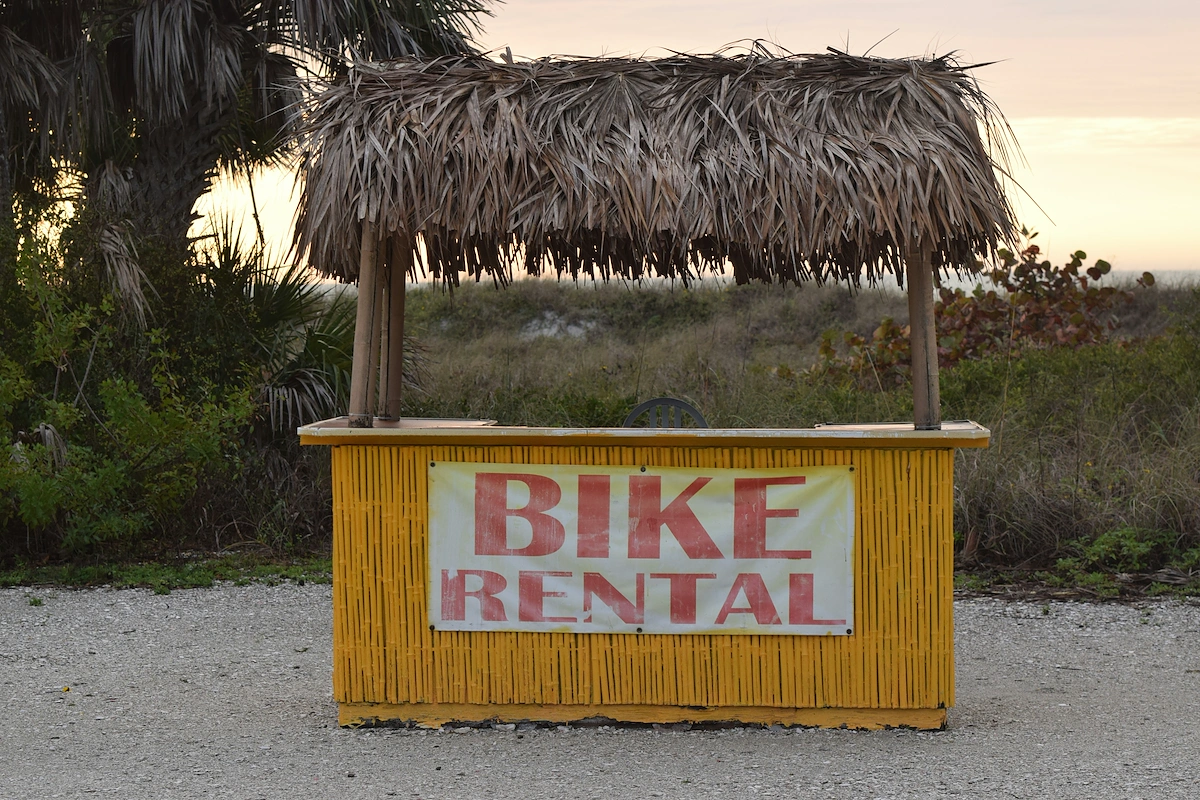Starting a mobile notary business is a rewarding venture that combines meticulous attention to detail with smart business savvy. The notary public market is a significant industry, with a steady demand for services in real estate, legal, and financial transactions.
This guide will take you through the practical steps of obtaining your commission and licenses, setting up your business structure, acquiring the right equipment, and marketing your services to help you launch a successful mobile notary business in the U.S.
Step 1: Plan your business and validate your market
Before you spend a dollar, research local demand. Contact real estate agencies, law firms, and hospitals in your area. These businesses often require notary services for loan signings and legal documents, so their interest can confirm your potential client base.
Once you confirm demand, analyze your competition. Use the National Notary Association (NNA) directory or local online searches to find other mobile notaries. Note their fees, service areas, and what customers say in reviews. This information helps you find a market gap to fill.
Understand your startup costs
Your initial investment can range from around $300 to over $1,000. Key expenses include your state notary commission, which can be anywhere from $15 to $150. You will also need a notary bond, a separate item that typically costs between $50 and $100.
You should also get Errors & Omissions (E&O) insurance, which might run $100 to $500 annually. Some new notaries try to skip this to save money, but that choice leaves you financially exposed if a mistake happens. Budget another $50 to $100 for supplies like your stamp and journal.
Here are 3 immediate steps to take:
- Research the specific notary commission requirements and fees for your state.
- List five local competitors and document their pricing and service areas.
- Create a detailed startup budget that includes licensing, insurance, and supplies.
Step 2: Establish your legal structure and licenses
First, decide on a business structure. Many mobile notaries start as a sole proprietorship for simplicity, but this mixes your personal and business finances. A Limited Liability Company (LLC) is often a better choice as it creates a legal separation between you and your business.
This separation is important. If a client sues your business, an LLC helps protect your personal assets like your home and car. For tax purposes, an LLC typically offers pass-through taxation, so profits are taxed as your personal income, avoiding double taxation.
Secure your business licenses
Your main credential is your state Notary Public Commission, governed by your Secretary of State. You should also get an Employer Identification Number (EIN) from the IRS. It is free, takes minutes to get online, and is needed to open a business bank account.
Don't forget local requirements. Most cities or counties require a general business license to operate, which can cost between $50 and $150 annually. Check your local government's website for the specific form and processing times, which are usually a few weeks.
Here are 3 immediate steps to take:
- Choose between a sole proprietorship and an LLC for your business structure.
- Apply for a free Employer Identification Number (EIN) on the IRS website.
- Research your city or county's requirements for a general business license.
Step 3: Secure your insurance and manage risk
Protect yourself with the right insurance
Your notary bond protects the public, not you. For your own protection, you need Errors & Omissions (E&O) insurance. This covers you if a mistake in a notarization leads to a client's financial loss. Many new notaries get this wrong and assume the bond is enough.
Coverage typically ranges from $25,000 to $100,000. A policy with $100,000 of coverage might cost between $200 and $500 annually. This investment provides significant peace of mind against potential claims.
You might also consider General Liability insurance, which protects you if a client is injured in your home office. If you use your car for appointments, check your auto policy. A personal policy may not cover business use, so a commercial auto policy could be necessary.
When you look for policies, focus on specialists. Providers like the National Notary Association (NNA), BiBERK, and Hiscox understand the specific risks notaries face. They can offer tailored packages that a general agent might miss.
Here are 3 immediate steps to take:
- Request E&O insurance quotes from the National Notary Association and BiBERK.
- Review your current auto insurance policy to confirm coverage for business travel.
- Decide on an E&O coverage amount that feels right for your risk tolerance, such as $100,000.
Step 4: Set up your office and get your equipment
Your office is wherever your clients are, but you need a home base. You do not need a commercial space. A dedicated area in your home is perfect, as long as it is secure. Check your local city or county website for rules on home-based businesses.
Get the right gear
Your equipment directly impacts your efficiency. A dual-tray laser printer is a key purchase for loan signings. It can cost between $300 and $600 but saves immense time by printing letter and legal-sized pages at once. Many new notaries regret using a slow inkjet printer.
You will also need your state-compliant notary stamp and a secure journal. These can be ordered from suppliers like the National Notary Association (NNA) for about $20 to $50 for a stamp and $15 to $30 for a journal. A portable scanner is also useful for digitizing documents on the go.
Finally, invest in a professional, lockable briefcase or bag. This protects client documents during transport and costs around $50 to $100. It shows clients you take their privacy seriously.
Here are 4 immediate steps to take:
- Check your local government's website for home-based business regulations.
- Order your state-compliant notary stamp and secure journal from a reputable supplier.
- Compare prices for dual-tray laser printers from brands like Brother or HP.
- Purchase a lockable briefcase to transport sensitive documents securely.
Step 5: Set up your payment processing
Most clients expect to pay you immediately after the service. While cash and checks are options, many people prefer to pay with a card. Offering card payments makes you look more professional and can prevent delayed payments from clients who do not carry cash.
When you look at payment solutions, focus on transaction fees and portability. Some new notaries sign up for systems with high monthly fees or clunky card readers. This eats into your profits and adds another piece of equipment to carry to appointments.
For mobile notaries who need to accept payments on-site, JIM offers a streamlined solution. With JIM, you can accept debit, credit, and digital wallets directly through your smartphone. Just tap and you are done. The fee is just 1.99% per transaction with no hidden costs.
This is particularly useful for handling on-the-spot payments after a loan signing. Its rate is often lower than the average commission from other providers, which can climb to 3% or more plus monthly fees. You also do not need extra hardware.
Getting started is straightforward:
- Get Started: Download the JIM app for iOS.
- Make a Sale: Type the sales amount, hit sell, and ask your customer to tap their card or device on your phone.
- Access Funds: Your money is available on your JIM card right after the sale, so there is no wait for bank transfers.
Here are 3 immediate steps to take:
- Decide on your accepted payment methods, such as cash, check, and credit cards.
- Compare payment solutions, focusing on transaction fees and hardware needs.
- Download the JIM app to explore its features for on-the-go payments.
Step 6: Fund your business and manage finances
Most mobile notaries self-fund their startup costs since they are relatively low. If you need capital, however, you have options. An SBA Microloan can provide between $500 and $50,000. Expect interest rates from 8% to 13% and a need for a good business plan.
Business credit cards with a 0% introductory APR are another route. They can help you purchase your printer and supplies without immediate interest. While notary-specific grants are rare, you might find general small business grants through the National Association for the Self-Employed (NASE).
Set up your financial systems
Plan to have at least $2,000 to $5,000 in working capital. This covers your first six months of fuel, insurance, and marketing before income becomes steady. This buffer prevents you from making desperate business decisions early on.
Open a separate business checking account immediately. Some new notaries mix personal and business funds to save time, but this complicates tax filing and puts your personal assets at risk if you operate as an LLC. It is a simple step that provides major legal protection.
Here are 4 immediate steps to take:
- Open a dedicated business checking account.
- Calculate your estimated operating costs for the first six months.
- Research SBA Microloan lenders in your state.
- Look into business credit cards with 0% introductory APR offers.
Step 7: Set up your operations and team
Most mobile notaries start as a one-person operation. You are the scheduler, marketer, and notary all in one. As your business grows, however, you will need systems to manage your workflow efficiently. This prevents burnout and missed opportunities.
Manage your schedule and workflow
Relying on a paper calendar or your phone's notes app works at first, but it can lead to double-bookings as you get busier. You might want to look into scheduling software designed for notaries, like NotaryGadget or NotaryAssist. General schedulers like Calendly also work well.
These platforms let clients book appointments online based on your availability. They can also help you track mileage and expenses for tax time. This automation frees you up to focus on the actual notarizations, which is where you make your money.
Plan for future hiring
When should you hire help? A good benchmark is when administrative work consumes over 25% of your week, or when you consistently turn down more than five signings a week. Your first hire might be a part-time administrative assistant.
An assistant can handle calls, scheduling, and document prep for about $18 to $25 per hour. To handle more signings, you can subcontract another Notary Signing Agent. They typically earn a flat fee of $75 to $150 per appointment and must have their own state commission.
Many notaries who hire run into trouble by misclassifying a subcontracted notary as an employee. Be sure to consult an accountant to understand the difference between a 1099 contractor and a W-2 employee to avoid tax issues.
Here are 3 immediate steps to take:
- Explore scheduling software like NotaryGadget and Calendly to see which fits your needs.
- Define your personal hiring trigger, such as turning down five appointments in one week.
- Research the legal distinction between an independent contractor and an employee in your state.
Step 8: Market your business and get clients
Build your online presence
Your first marketing move should be a Google Business Profile. It is free and makes you visible in local map searches. Fill out every field, especially your service area and hours. A professional headshot here builds immediate trust with potential clients.
A simple, one-page website also adds significant credibility. You can use a service like Squarespace to create one over a weekend. This gives you a central place to list your services, fees, and contact details, which looks more professional than a social media page alone.
Connect with direct clients
With your online presence set, begin direct outreach. Identify 10 to 15 local title companies, law offices, and hospitals. Visit them in person with business cards and a simple fee sheet. A brief, friendly introduction is often more effective than a cold email.
Many new notaries make the mistake of only using signing services. While these platforms provide initial jobs, they often take 40-50% of the fee. Your goal is to build a direct client base, which gives you control over your rates and schedule.
Here are 3 immediate steps to take:
- Create and completely fill out your Google Business Profile.
- List 10 local businesses, like law firms or title companies, to contact.
- Design and print professional business cards and a one-page fee sheet.
Step 9: Set your pricing and service packages
Your state likely caps the fee per notarized signature, often between $5 and $15. This is not where you make your profit. Your primary income will come from mobile service and travel fees, which you set yourself. You should have a clear fee structure before you take your first call.
Develop your fee schedule
For general notary work, a common model is to charge your state's maximum signature fee plus a travel fee. You might set a flat travel fee of $25 for appointments within a 10-mile radius, then add $1 to $2 for each additional mile. This protects your time and fuel costs.
Loan signings are different. These are priced as flat-rate packages, typically from $75 to $200. The fee depends on the document stack size and your travel distance. A frequent mistake is to underprice these complex jobs, so research what experienced agents in your area charge.
Here are 3 immediate steps to take:
- Look up your state's maximum allowable fee per notarization.
- Create a travel fee schedule with a base rate and a per-mile charge.
- Set a flat-rate price for a standard loan signing package.
Step 10: Maintain quality and scale your business
Your reputation is your most valuable asset. To protect it, you should pursue the National Notary Association (NNA) Signing Agent certification. This involves a background screen and exam, and it signals a higher standard of practice that title companies actively seek.
Measure your performance
Track your performance with specific metrics. You can monitor your error rate, with a goal of zero mistakes per 100 signings. Also, keep an eye on your Google Business Profile rating. Aim to maintain a 4.8-star average or higher, as this directly influences client calls.
Once your quality is consistent, you can think about growth. A clear sign it is time to scale is when you regularly turn down five or more appointments a week. At this point, you can either hire a subcontractor or invest in more automation.
A mistake some notaries make is hiring another agent without first verifying their E&O insurance and NNA certification. Remember, you are responsible for any work you subcontract. Software like NotaryGadget can also help manage increased volume by tracking mileage and expenses efficiently.
Here are 3 immediate steps to take:
- Begin the process to become an NNA Certified Signing Agent.
- Set a quality goal to maintain an error rate below 1% on all signings.
- Decide on your growth trigger, such as turning down five appointments in one week.
Your mobile notary business thrives on reliability and professionalism. Remember that your best clients often come from direct relationships, not just signing services. Focus on building that local network. You have a clear path forward, so take that first step with confidence.
As you meet clients, make payments simple. With JIM, your smartphone becomes your card reader, so you can accept payments for a flat 1.99% fee without extra hardware. This keeps your process smooth from start to finish. Download JIM to get started.















